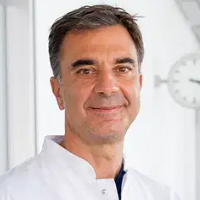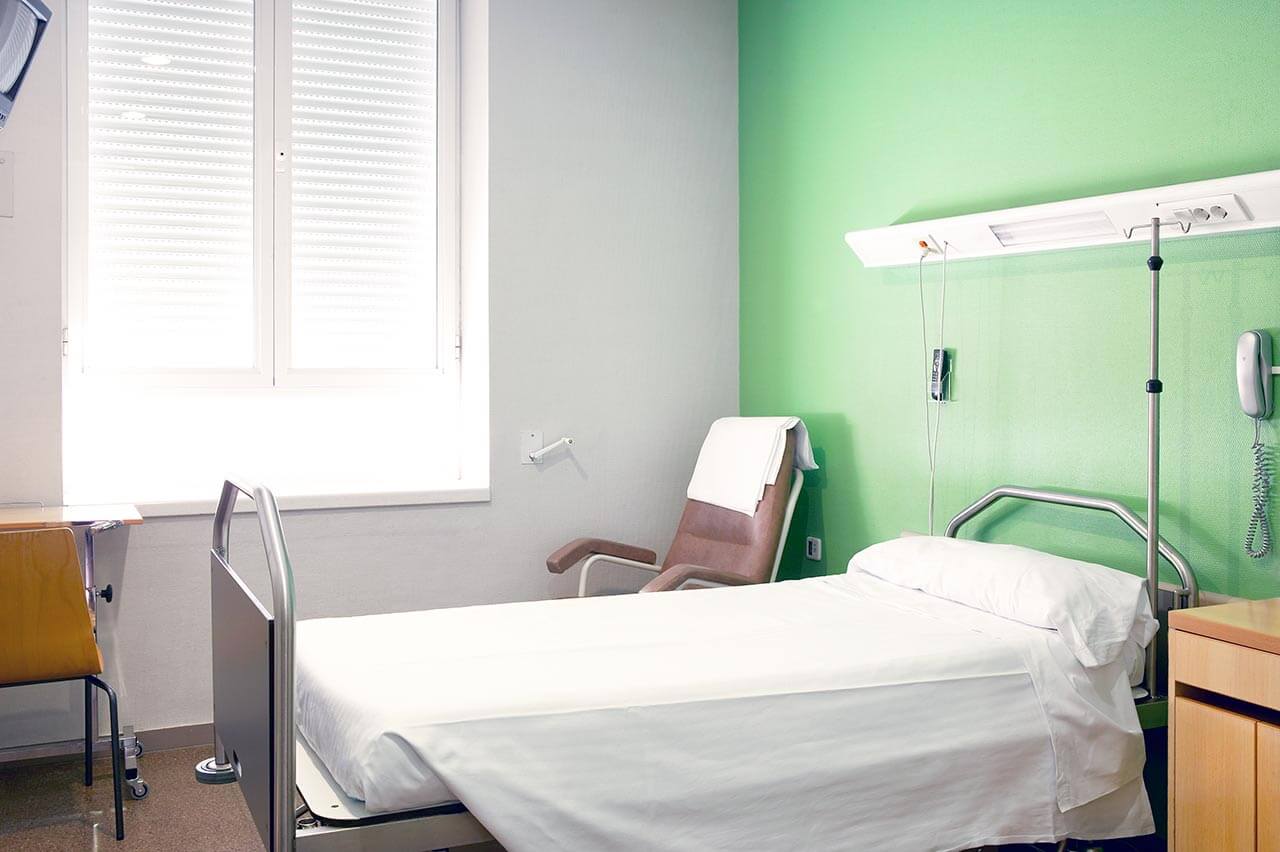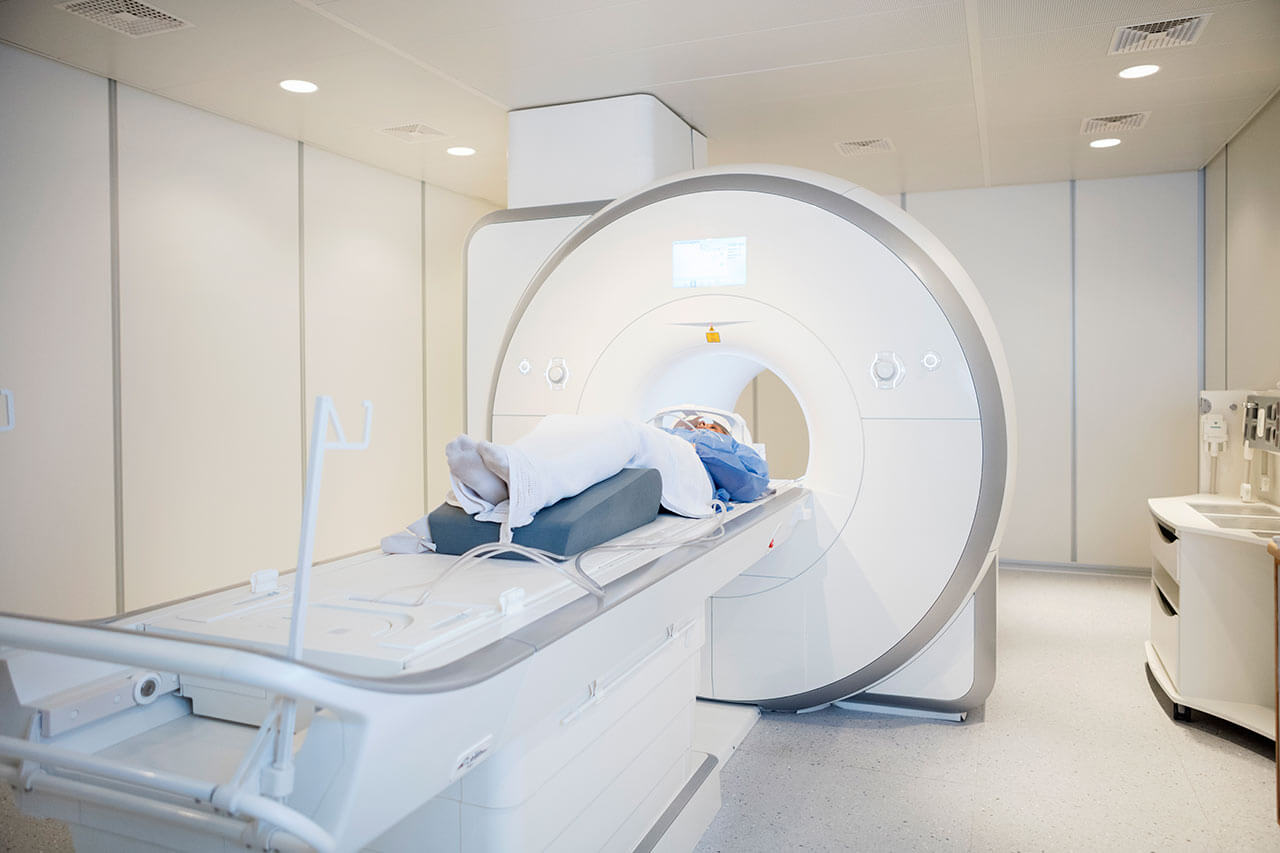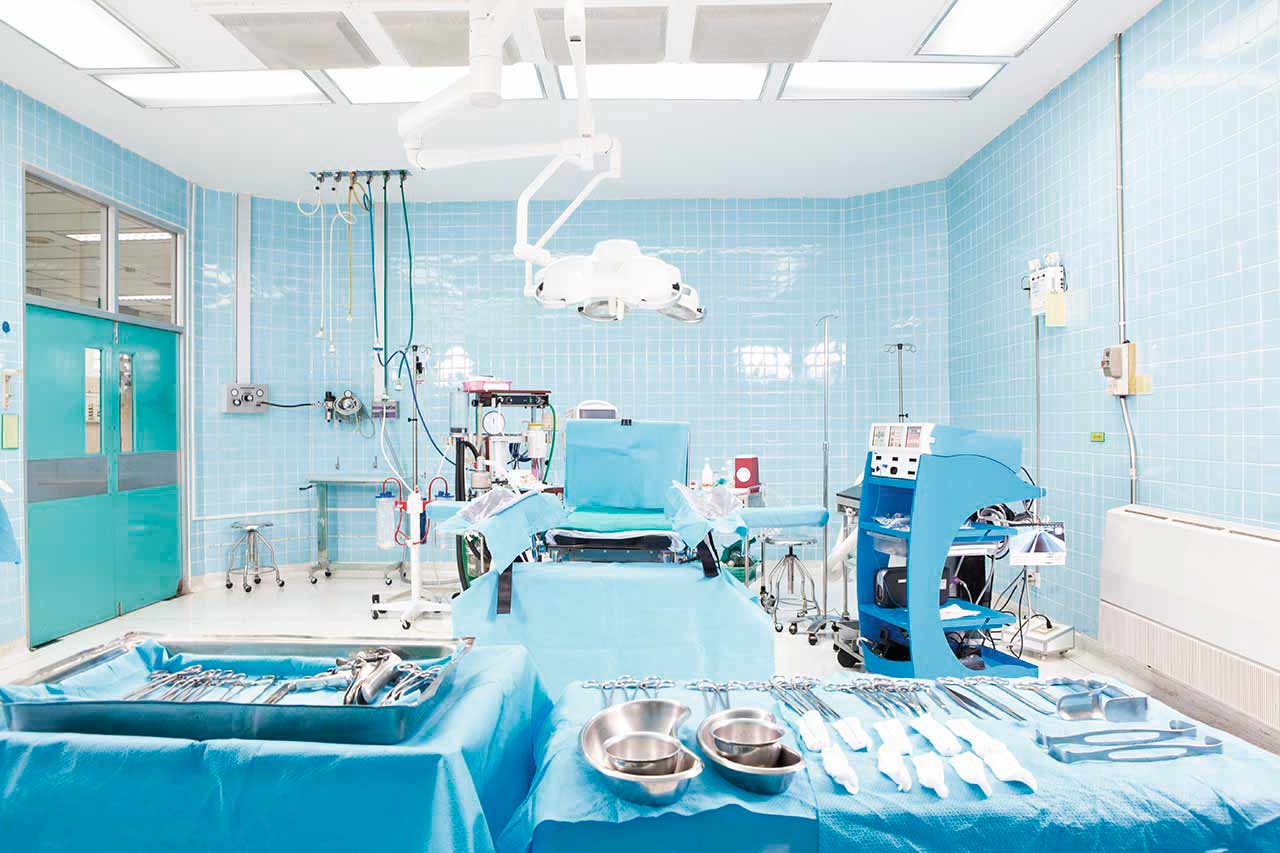
The program includes:
- Initial presentation in the clinic
- clinical history taking
- review of medical records
- physical examination
- laboratory tests:
- complete blood count
- biochemical analysis of blood
- mineral metabolism analysis (Na, K, Ca, Mg)
- lipid metabolism (HDL/LDL, cholesterol,
triglycerides Lip(a), homocysteine) - inflammation indicators (CRP, ESR)
- indicators blood coagulation
- blood gas analysis
- chest x-ray examination
- holter monitoring (24h)
- measurement of arterial blood pressure (24h)
- electrocardiogram (ECG)
- pulmonary function test
- echocardiography
- doppler echocardiography
- high-resolution computed tomography (HR-CT)/MRI (on indication 950/1200€)
- CT angiography (on indication 1350€)
- nursing services
- consultation of related specialists
- treatment by chief physician and all leading experts
- explanation of individual treatment plan
(the cost of medicines is not included)
Required documents
- Medical records
- ECG (if available)
Service
You may also book:
 BookingHealth Price from:
BookingHealth Price from:
About the department
The Department of Cardiology at the University Hospital of the Ludwig Maximilian University of Munich offers the full range of diagnostic and therapeutic services for patients with cardiovascular diseases. The department specializes in drug therapy and modern interventional cardiac catheter-based procedures. Patients with heart failure, myocardial infarction, heart valve pathologies, and arrhythmias are regularly admitted to the medical facility. The department's medical team has more than 300 employees, for whom it is important that each patient receives the most effective treatment in comfortable conditions. The department has 144 beds. Cardiologists admit about 7,500 inpatients annually. More than 20,000 patients receive medical care on an outpatient basis. The department is rightly proud of the numerous certificates of the German Cardiac Society (DGK) in treating acute coronary syndrome, heart failure, and atrial fibrillation, as well as transcatheter aortic valve implantation (TAVI) and the MitraClip procedure. The department is headed by Prof. Dr. med. Steffen Massberg.
Heart failure treatment is among the priority tasks of the department's experts, and therefore a highly specialized outpatient clinic was created here to admit patients with this pathology. The development of heart failure may be caused both by hereditary myocardial diseases and by acquired inflammatory heart diseases (for example, myocarditis). The department's cardiologists develop an individual heart failure treatment regimen for each patient, since without high-quality and timely treatment, the disease may cause irreversible consequences. In many cases, treatment with advanced drugs is used to control the pathology. If medications do not produce the desired results, cardiologists and cardiac surgeons will perform interventions to implant artificial cardiac assist devices. The last-line therapy is a heart transplant, which is performed in the Department of Cardiac Surgery.
The department has been admitting patients with structural and functional heart valve disorders for many years. The department's cardiologists have a perfect command of the advanced techniques of catheter-based interventions for aortic, mitral, and tricuspid valve diseases. An innovative procedure for aortic valve replacement is TAVI (transcatheter aortic valve implantation) catheter-based intervention. This treatment method is of particular value for elderly patients who are simply not able to undergo a full-fledged operation due to concomitant diseases, which until recently was the only possible treatment method. The department's cardiologists also successfully use the endovascular clipping method (MitraClip) for treating mitral valve insufficiency.
Heart rhythm disturbances (arrhythmias) are also quite common in the department's clinical practice. The most informative and reliable diagnostic test to confirm this diagnosis is electrocardiography (ECG), including stress ECG. In the case of mild forms of arrhythmia, a patient is prescribed drugs. When dealing with the treatment of more severe cases, the department's cardiologists resort to radiofrequency ablation. The essence of this therapeutic procedure is to destroy the pathological tissues of the heart that cause an abnormal heart rhythm. The tasks of the department's specialists include monitoring patients with previously implanted pacemakers, defibrillators, and devices for cardiac resynchronization therapy, as well as monitoring the functioning of these devices and their adjustment.
The department specializes in the diagnostics and treatment of the following heart diseases:
- Myocardial infarction
- Resuscitation measures to stabilize a patient's condition followed by long-term drug therapy
- Heart failure
- Drug therapy
- Implantation of cardiac assist devices (in collaboration with cardiac surgeons)
- Arrhythmias (heart rhythm disturbances)
- Pharmacotherapy
- Radiofrequency ablation
- Monitoring of patients with previously implanted pacemakers, defibrillators, and cardiac resynchronization therapy devices, as well as monitoring and adjustment of these devices
- Heart valve pathologies
- Aortic valve stenosis and insufficiency
- Transcatheter aortic valve implantation (TAVI)
- Mitral valve stenosis and insufficiency
- MitraClip procedure
- Tricuspid valve stenosis and regurgitation
- Catheter-based interventions
- Aortic valve stenosis and insufficiency
- Left atrial appendage defects
- Catheter-based procedure to place an occluder to close the left atrial appendage
- Patent foramen ovale
- Catheter-based procedure to close the defect
- Atrial and ventricular septal defects
- Catheter-based closure procedures
- Coronary artery disease
- Drug therapy for mild forms of the pathology (severe ischemia requires surgery)
- Carditis
- Pharmacotherapy
- Cardiomyopathy
- Pharmacotherapy
- Transcoronary ablation of septal hypertrophy (TASH) for hypertrophic cardiomyopathy
- Arterial hypertension
- Pharmacotherapy
- Other diseases and other medical services
Curriculum vitae
Higher Education, Postgraduate Training and Professional Career
- 1996 3rd State Examination, Human Medicine, Ludwig Maximilian University of Munich.
- 1997 Thesis defense with honors, Walter Brendel Center for Experimental Medicine, Ludwig Maximilian University of Munich.
- 1997 - 1999 Assistant Physician, Department of Surgery at the University Hospital of the Ludwig Maximilian University of Munich; Fellow, Walter Brendel Center for Experimental Medicine, Ludwig Maximilian University of Munich.
- 1999 - 2004 Junior Working Group Leader, Vascular Biology Working Group, German Heart Center Munich and Department of Cardiology at the University Hospital Rechts der Isar Munich.
- 2004 Board certification in Internal Medicine and habilitation, Technical University of Munich.
- 2005 - 2007 German Research Society (DFG) Heisenberg Fellowship, Prof. Andrian's Laboratory in the Department of Pathology, Harvard Medical School, Boston, Massachusetts.
- 2007 W2 Professor, Technical University of Munich.
- 2007 - 2012 Senior Physician, Department of Cardiology, German Heart Center Munich, University Hospital Rechts der Isar Munich.
- 2008 Specialization in Cardiology.
- 2010 - 2012 Managing Senior Physician and Deputy Head of the Department of Cardiology, German Heart Center Munich, University Hospital Rechts der Isar Munich.
- Since 1012 Head of the Department of Cardiology at the University Hospital of the Ludwig Maximilian University of Munich and W3 Professor in Internal Medicine and Cardiology, Ludwig Maximilian University of Munich.
Memberships in Professional Societies
- Since 1998 German Society for Microcirculation and Vascular Biology.
- Since 1998 Bavarian Surgical Society.
- Since 2000 German Cardiac Society (DGK).
- Since 2008 "Vascular Biology" Working Group of the German Cardiac Society (DGK).
- Since 2008 "Stem Cells" Working Group of the German Cardiac Society (DGK).
- 2010 Founding Member of the Munich Heart Alliance.
- Since 2011 "Interventional Cardiology" Working Group of the German Cardiac Society (DGK).
Photo of the doctor: (c) LMU Klinikum
About hospital
According to the Focus magazine, the University Hospital of Ludwig Maximilian University of Munich is regularly ranked among the best medical institutions in Germany!
The hospital is the largest multidisciplinary medical facility, as well as a leading research and training center in Germany and Europe. The hospital is proud of its bicentenary history and tirelessly confirms its primacy at the national and international levels. The outstanding quality of medical care is complemented by highly productive research activities, thanks to which many effective diagnostic and therapeutic methods, saving people’s lives, have been presented in medical practice.
The medical facility includes two main buildings, Grosshadern and Innenstadt. The hospital has 29 specialized departments, 53 interdisciplinary centers, 11 institutes, and many sections. More than 500,000 patients are treated here every year, which indicates the hospital's excellent reputation. A large and highly professional medical team, consisting of 1,800 doctors and 3,300 nursing staff, works for the benefit of patients. The hospital has 2,000 beds to accommodate patients.
The hospital's infrastructure deserves special attention: advanced diagnostic equipment that allows doctors to detect the slightest pathological changes in the human body, the latest operating rooms with highly efficient monitoring systems, robot-assisted surgical systems that facilitate sparing operations, and proper postoperative care.
Excellent technical resources and highly professional medical staff are undoubtedly the hospital's pride, but the medical facility also pays attention to the patient's comfort and to a humane attitude toward their life situation. When providing the necessary medical care, doctors and nursing staff always show a friendly attitude, inform patients in detail about the upcoming diagnostic and therapeutic procedures, gladly answer all questions of interest to patients, and provide moral support during the therapeutic process.
The hospital has many prestigious quality certificates, including a DIN EN ISO 9001 certificate, an IQM certificate, an endoCert certificate, certificates from the German Cancer Society (DKG) for treating various types of cancer, the German Cardiac Society (DGK), the German Society for Orthopedics and Trauma Surgery (DGOU), etc. Thus, patients can count on the best possible treatment outcome due to the use of the most effective and, at the same time, sparing therapeutic techniques.
Photo: (с) depositphotos
Accommodation in hospital
Patients rooms
The patients of the University Hospital of Ludwig Maximilian University of Munich live in comfortable, spacious, single and double patient rooms with a modern design. Each room is equipped with an ensuite bathroom with a shower and toilet. The furnishing of a standard patient room includes a comfortable bed, the position of which can be adjusted using the remote control, a locker for storing personal belongings, a TV, and a telephone. Also, if desired, you can connect to the Internet. In addition, patients can opt for enhanced-comfort rooms, with a safe, a fridge, and upholstered furniture.
The hospital has an excellent infrastructure. The medical facility’s area houses a bank, ATMs, a hairdresser, shops with a wide range of food, drinks, newspapers, magazines, and personal hygiene items, play areas for children, and a beautiful garden for walking, etc.
Meals and Menus
The patient and his accompanying person are offered a daily choice of three menus, including a vegetarian one. If you are on a specific diet for any reason, you will be offered an individual menu. Please inform the medical staff about your dietary preferences prior to the treatment.
Further details
Standard rooms include:
Religion
Religious services are available upon request.
Accompanying person
Your accompanying person may stay with you in your room or at a hotel of your choice during the fixed program.
Hotel
You may stay at a hotel of your choice during an outpatient program. Our managers will help you to choose the best option.
The hospital offers a full range of laboratory tests (general, hormonal, tests for infections, antibodies, tumor markers, etc.), genetic tests, various modifications of ultrasound scans, CT scans, MRI and PET/CT, angiography, myelography, biopsies, and other examinations. Treatment with medications, endoscopic and robotic operations, and stereotaxic interventions are carried out here, modern types of radiation therapy are also used. The hospital offers patients all the necessary therapeutic techniques.
- Allogeneic bone marrow transplantation
- Microsurgical transplantation of head and neck tissues
- Microsurgical resection of brain tumors with intraoperative fluorescence
- Minimally invasive treatment of spine pathologies
- Joint replacement with postoperative rehabilitation (fast track program)
Patients with benign and malignant neoplasms of various localizations, pathologies of arteries and veins, herniated discs, osteoporosis, congenital and acquired pathologies of the musculoskeletal system, benign and malignant pathologies of the mammary gland, and other pathologies.
Which specialties of the University Hospital of Ludwig Maximilian University of Munich are the best?
- Interventional and diagnostic neuroradiology
- Vascular surgery
- Cardiac surgery
- Mammalogy
- Gastroenterology and hepatology
Over 1,700 highly qualified doctors work at the hospital.





